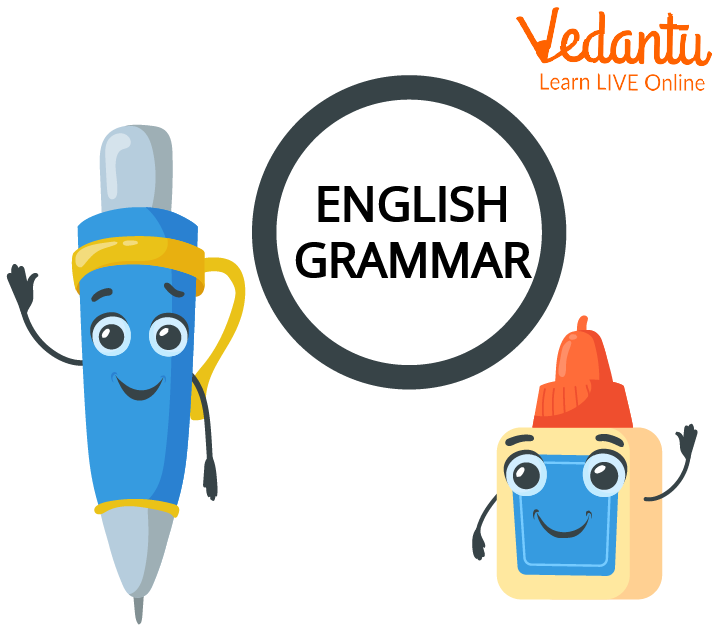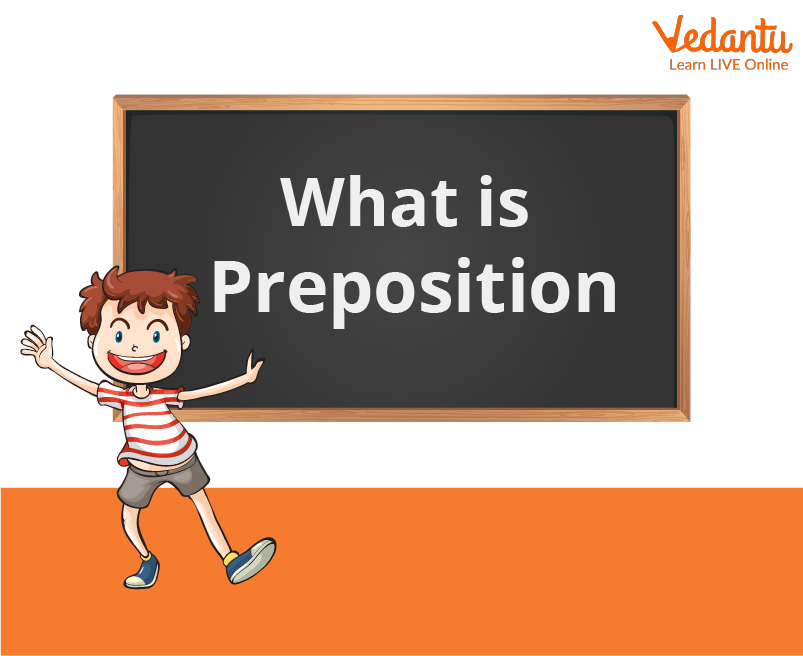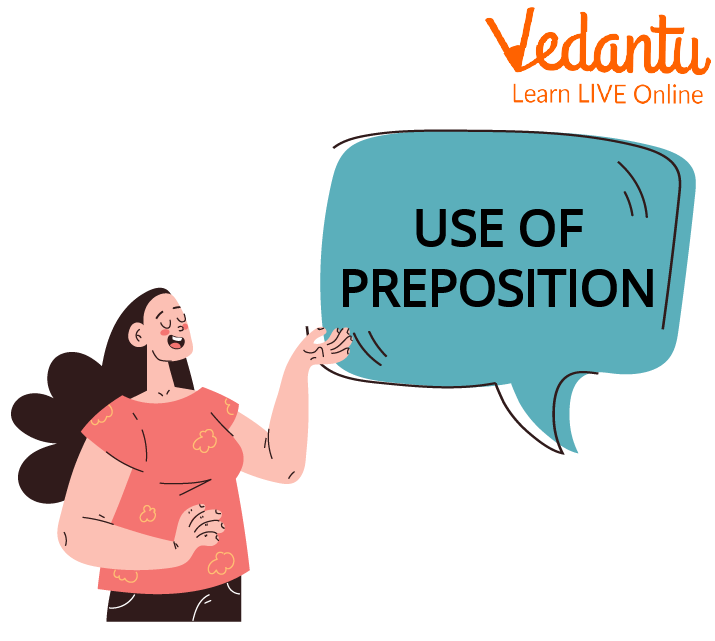
Essential Prepositions Practice and Exam Tips for Class 10 English Grammar
English Grammar for Class 10 Prepositions is basically the study of grammar to excel in the English language. Thus, the students must take English Grammar as one of the core subjects quite seriously. Also, students who are further attempting to study for masters and higher education in the English language must not fuss with this subject at their basic levels. In these classes, learning effective grammar will take a student on a long career development path.
In this article, we will be studying Class 10 Prepositions English Grammar and we will be notifying you about the topics that are included in the Class 10th English Grammar Syllabus 2025-26. Students must note that we are discussing the general syllabus for Class 10 Prepositions English Grammar, you must once cross-check with your own respective school’s or board’s syllabus for 2025-26.
English Grammar for Class 10 Prepositions Download Free PDF
In today’s lesson, we will discuss prepositions. We will begin with understanding the definition of prepositions. Then we will see examples of these prepositions. Moving ahead we will learn about different types of prepositions. Practice questions and solved examples are given throughout the article for better understanding and concept clarity.

English Grammar
Let’s begin the journey on this amazing topic.

Introduction to Prepositions
What is a Preposition?
Prepositions are words that are normally used before nouns or pronouns to show time, place, location, direction, relationship, etc.
Some examples are:
1. He fell off a ladder.
2. I have read the chapter on modals.
3. Give the book to me.
Types of Prepositions
1. Preposition of Time:
Prepositional phrases are words that occur before a noun or pronoun and explain the relationship between two nouns. Events that happen all at once or over a long period of time might be described by a preposition of time. Simple examples of prepositions include at, on, in, before, since, till, during, by, from, and after. They are used to help signal events that have already happened, are going to happen, or will happen.
Examples:
This has been the tradition since time immemorial.
I will send the mail after this meeting.
The bloodshed during the Mahabharata was brutal.
I will need your approval by today.
2. Preposition of Place:
Prepositions of place describe the relationship between two objects or people. Utilizing prepositions of place allows you to point someone in the right direction. Prepositions like above, on, on top of, beneath, underneath, below, under, in front of, behind, next to, between, alongside, near, far close to, within, outside, out of, out, on, at, in, etc. are frequently used to express position.
Examples:
There is a great hangout cafe just outside the building.
The waterfall park is very far.
The baby was seated in between her parents.
3. Preposition of Direction:
Prepositions of direction tell us how something moves or is pointed toward in relation to other things or persons. To refer to the act of moving from one location to another Examples include "to," "through," "toward," "into," "across," and "over," among others.
Examples:
We will have to move across the city to reach there.
Is he coming over?
There is no point forcing him to head towards the North.
Prepositions Used in Different Sentences:
Prepositions can be used at the end of a sentence if the sentence is a question. For example,
What film are you interested in?
Which book are you pointing to?
The preposition can also be placed before the conjunction whom or which. For example,
He is the person to whom I can turn in need.
The book from which I have taken this poem is Madhushala.
Use of Prepositions
Prepositions are uncommon, yet they are important because they act as sentence structure markers, expressing certain links between subjects, objects, and locations. To show where the subject or object of a noun or pronoun sits in relation to other nouns or pronouns, a preposition is a word that comes before the noun or pronoun.
A word like "in" or "after" is mostly meaningless and challenging to explain in words on its own. However, because prepositions are so crucial to English, choosing the wrong one can change the meaning of a sentence. Someone who has a solid command of the English language uses prepositions correctly.

Use of Prepositions
Prepositions can be used for various purposes:
Prepositions for Time: Prepositions of time indicate how the nouns in a sentence relate to one another in terms of time.
Prepositions used to express time are at, on, in, by, during, before, after, etc.
For example,
We are leaving for Delhi on the morning of the tenth of July.
I’ll complete the work by 2 p.m.
We stay in our village during the summer holidays.
I don’t want to hold any meetings before lunch.
Prepositions for Place: Prepositions of place describe how one thing or person is situated with respect to another.
Prepositions used for the place are on, at, under, over, among, between, etc.
For example,
The hotel is on your right.
The river flows under the bridge.
He lives among the hills.
The school is opposite of my house.
Ram is standing between Mohan and Vijaya.
They had a discussion over a cup of tea.
Use of Prepositions after Adjectives: The preposition is always placed immediately after the adjective.
Prepositions used after adjectives are to, of, for, etc.
For example,
He is qualified for the post.
She is fond of cooking.
He is not interested in the job.
He is angry with me.
I am not partial to anyone.
My father is very liberal with money.
She is fond of cooking.
Use of Prepositions for Tools, Agency, Description, etc: Prepositions of agency or description are frequently used to describe anything that is the cause or origin of another object that appears in the phrase.
For example,
I have no money with me.
Cut the apple into two with a knife.
Call the boy in blue.
The hills are covered with snow.
Can you see the girl with brown hair?
Use of Prepositions after Verbs: Prepositions are necessary to connect some verbs to the objects of their phrases.
Prepositions used after verbs are up, to, of, on, etc.
For example,
She climbed up the stairs.
His eyes blazed with anger.
The dog is walking down the stairs.
He objected to my proposal.
He dreams of teaching at IIT.
They were freed from prison last month.
We have resolved on teaching slum kids.
Use of Prepositions after Nouns: When used with a noun, a preposition can specify the location or method of an object.
For example,
Have you got the details about the game?
He is an honour to the profession.
He covered his face with a mask.
Everyone admires her strength of character.
He is an honour to the profession.
Difficult Word Meaning
Word | Definition |
Adjectives | Adjectives are words that describe the qualities or specifications of the noun. |
Verbs | In a sentence, verbs serve as the action words that describe what the subject is doing. |
Summary
In this chapter, we started with the basic definition of prepositions. Prepositions are important because they act as vital markers to the structure of a sentence, they mark special relationships between persons, objects, and locations We then learned the places where prepositions can be used, then after we saw different kinds of prepositions used in respective situations such as preposition for time, place, direction, etc. Practice Questions along with the answers and the vocabulary of difficult words used in the chapter are discussed in the end.
Practice questions:
Fill in the blanks with appropriate prepositions.
1. Your article is full ______ errors,(in, of, on, for)
2. Sugar dissolves ______ water,(on, in, for)
3. I will return______ a month, (in, of, on, for)
4. The Ramayana is lying______ the table, (in, of, on, for)
5. We shall finish this work______ 11 a.m. today, (in, by, on, at)
6. Send me letters______ this address, (by, in, to, on)
7. You should listen_______ your parents . (among, in, to, between)
8. Sita writes______ on the paper, (with, on, in, at)
Answers:
Fill in the blanks with appropriate prepositions.
1. Your article is full of errors.
2. Sugar dissolves in water.
3. I will return in a month.
4. The Ramayana is lying on the table.
5. We shall finish this work by 11 a.m. today.
6. Send me a letter on this address.
7. You should listen to your parents.
8. Sita writes on the paper.
NCERT Solutions - Class 10 Prepositions Grammar Solution
NCERT Solutions for English Grammar serves as a comprehensive solution book for the students of Class 10 Prepositions who are willing to expertise in the English Grammar subject.
The Class 10th English Grammar syllabus is comprehensively mentioned in this NCERT Solutions. Exhaustive Class 10 Grammar topics are present in the NCERT Solutions. Also, this is to ensure that students from any board can refer to the NCERT Solutions for English Grammar Class 10 Prepositions.





































